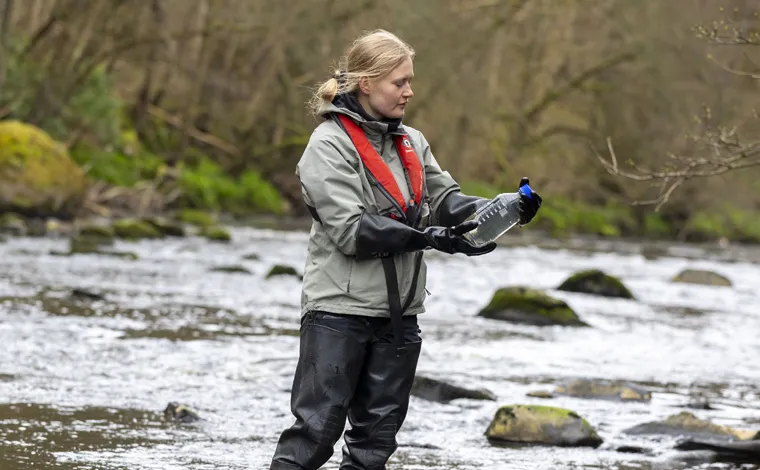/filters:format(webp)/filters:no_upscale()/prod01/cdn/media/stirling/news/news-centre/2025/oct-25/1200X630Satellite.jpg)
Stirling to play key role in UK Space Agency funded water quality monitoring project
Water is essential to life on earth, but this vital resource is under threat as a result of over-exploitation and ineffective management, compounded by climate change. The degradation of water quality worldwide has huge implications for everything from sustaining life, generating energy and regulating the climate, to maintaining biodiversity and protecting ecosystems.
For 30 years, University of Stirling scientists have tackled these challenges through a distinct whole-system approach. This approach – involving smart diagnostics, innovative solutions and impactful application – has provided effective scalable interventions to improve the world’s water quality from source to sea.
For more than 30 years, our scientists have been improving water quality globally through Earth observation in an ever-changing world.
Find out how our research has been critical to implementing major new policies to repair tens of thousands of water bodies across Europe.
Stirling experts are involved in a huge range of research activities designed to improve water quality globally. Take a closer look at just some of our work.
Experts from our Earth and Planetary Observation Research Group developed the globally adaptive models and open-source algorithms which underpin the first openly accessible, satellite-based inland water data processing system.
The Scotland Hydro Nation Chair is a £3.5 million programme, funded by Scottish Water through the Scottish Funding Council and hosted by the University.
For more than two decades, our scientists have been exploring how the reintroduction of beavers can make a critical, at-scale contribution to improving water quality in the UK.
Through their part in the Developing Optimal and Open Research Support for the Black Sea (DOORS) project, our experts provide critical insights into water quality on a sea-wide scale for the first time.
Professor Andrew Tyler, Scotland's Hydro Nation Chair at the University of Stirling, talks about the net zero mission for Scotland's water sector.
Find out more about how our earth monitoring work is addressing flood risks in the Forth Valley, and beyond.

Water remains a resource under threat from emerging exploitation and the accelerating pace of climate change. In the face of these challenges, we remain focused on changing the world for the better, and have been awarded grants worth over £112m to help tackle water quality challenges.
Our distinct, whole-system approach of smart diagnostics, innovative solutions and impactful application is making a decisive contribution to improving water quality globally. The University’s next generation of researchers, graduates and students are ready to tackle emerging challenges in a constantly changing world.
The Faculty of Natural Sciences research tackles global challenges in issues such as food security, changing environments, behaviour and evolution, digital economies and biodiversity.
We explore the processes driving the evolution and maintenance of biodiversity, from the molecular to the ecosystem level. We look at how environments and ecosystems have changed over time to predict and mitigate the future impacts of climate change.